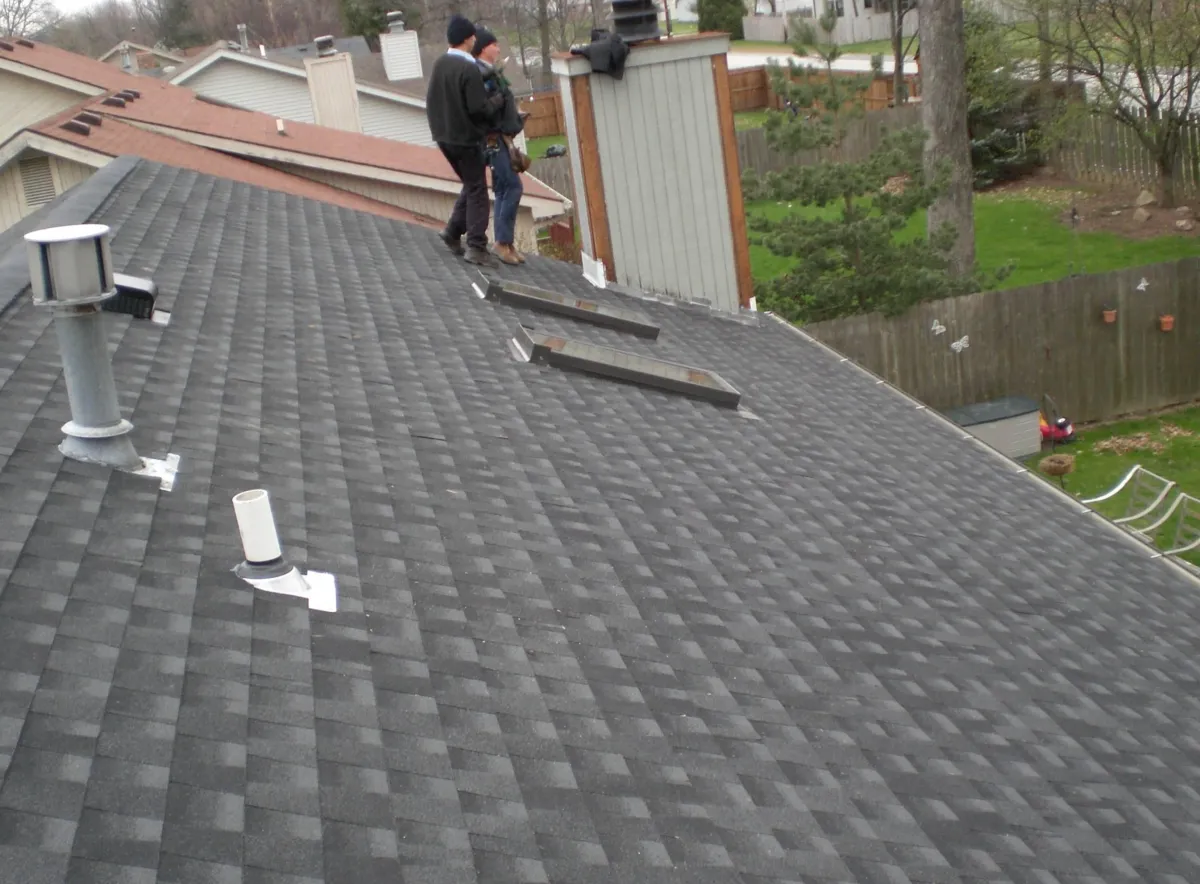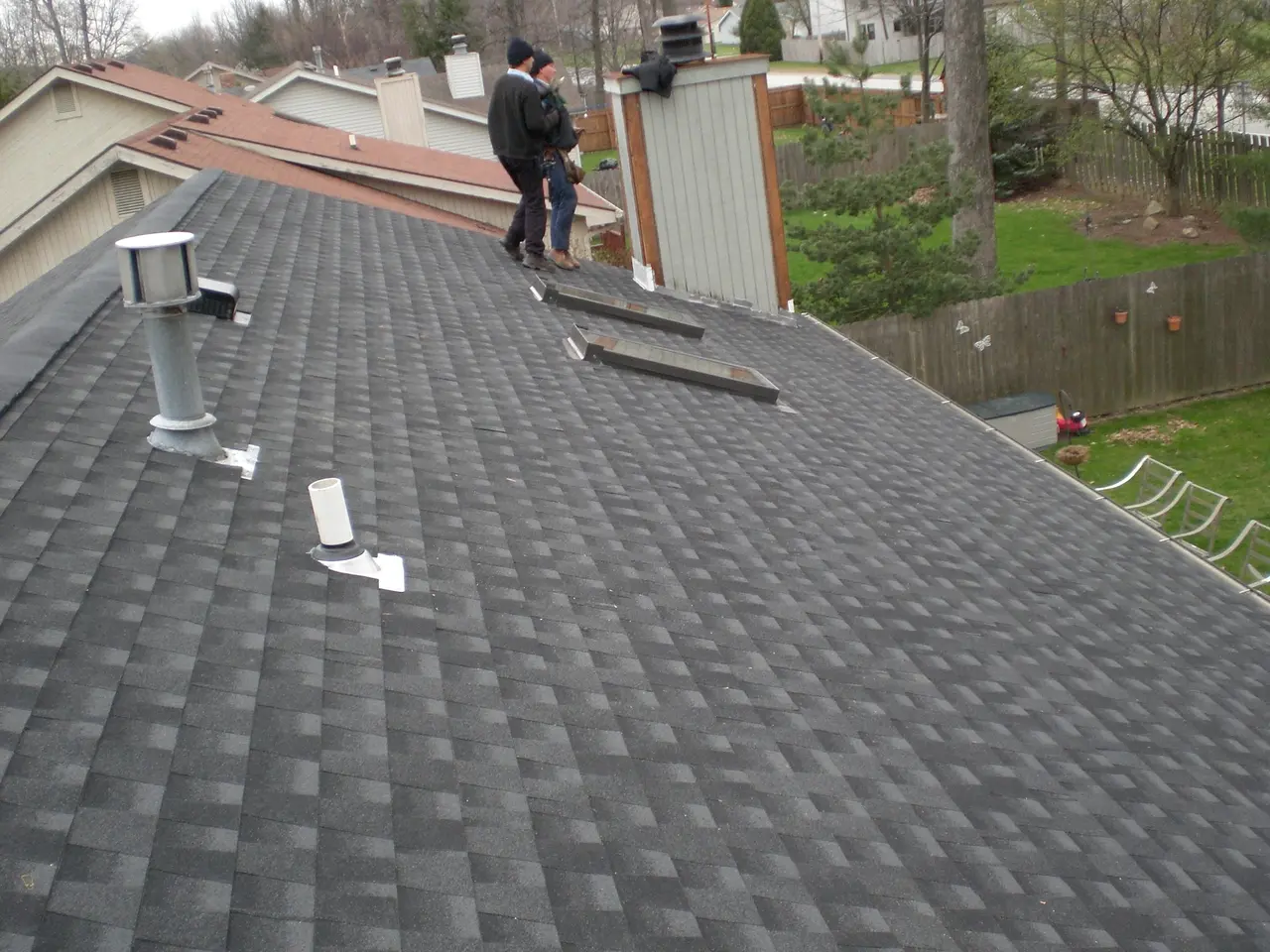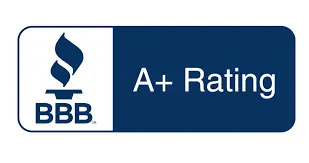SERVING FORT WAYNE AND SURROUNDING AREA
News & Insights

The Homeowner's Guide to Navigating Insurance Claims with Your Roofing Contractor
The Homeowner's Guide to Navigating Insurance Claims with Your Roofing Contractor
Navigating the world of insurance claims can feel overwhelming, especially when it comes to something as significant as your roof. This guide aims to simplify the process for homeowners, helping you understand how to effectively work with your roofing contractor and insurance company. We will walk you through each step of the claims process, ensuring that you feel confident and informed as you tackle your roofing needs.

Understanding Your Insurance Policy
Before you even contact your roofing contractor, it's essential to understand the terms of your insurance policy. Get familiar with what is covered, what exclusions exist, and any deductibles you might need to meet. This knowledge sets the foundation for a smoother claims process.
Take the time to read through the fine print and pay attention to the sections that discuss your coverage for roofing-related incidents. Not all policy types are created equal, and knowing the specifics can save you from confusion later. If you find any jargon confusing, don’t hesitate to reach out to your insurance agent — they’re there to help clarify things.
Additionally, make a list of any questions or concerns you might have about your policy. By doing this, you’ll be well-prepared when discussing your claim with both your insurance company and your roofing contractor, ensuring you get the most out of your coverage.
Choosing the Right Roofing Contractor
Selecting a reputable roofing contractor is crucial to ensuring that your insurance claim goes off without a hitch. We’ll discuss how to evaluate potential contractors, check their credentials, and read reviews to find the best partner for your project.
Start by asking for recommendations from friends, family, or neighbors who have recently had roofing work done. Personal experiences can give you invaluable insights. Then, expand your search by checking online reviews and ratings. Websites like Yelp or Angie’s List can provide a wealth of information about local contractors, helping you make an informed decision.
Once you have a shortlist, don’t hesitate to ask for quotes. A good roofing contractor will provide a detailed estimate. This should not only include the cost of materials and labor but also a timeline for the work. A reliable contractor will be transparent and ready to explain each element of the quote to you. Keep in mind that the cheapest option is not always the best — consider quality and warranty offerings as well.
Preparing for Your Insurance Claim: Key Steps
Preparation is key when it comes to filing an insurance claim. We’ll cover the important documents you need to gather, such as photos, estimates, and reports from your contractor, to help facilitate the claim process.
Start by taking photographs of any damage to your roof. Visual evidence can play a critical role in substantiating your claim. Make sure to capture different angles and include close-ups of any problematic areas. Similarly, collect any documentation provided by your roofing contractor. Detailed estimates and repair reports will not only serve as proof but may also provide insights that can influence your claim positively.
In addition to images and documents, keep a timeline of events related to the damage and when you filed your claim. This record will come in handy if any discrepancies arise during the claims process. The more organized you are, the smoother your experience with your insurance company will likely be.
The Claims Process: What to Expect
Understanding the claims process can help alleviate anxiety during this stressful time. We'll outline the typical steps involved, from filing the claim to the insurance adjuster's inspection, and what role your roofing contractor plays throughout.
After you've submitted your claim, an insurance adjuster will be assigned to your case. Their role is to investigate your claim’s validity by assessing the damage and determining the amount that can be paid out based on your policy. It’s vital to have your roofing contractor present during this inspection, as their expertise can provide additional context about the damage and repairs needed.
Expect to receive a detailed report after the adjuster’s visit, which will outline their findings and the next steps to take. This report is crucial, so read it carefully and discuss it with your roofing contractor to ensure you understand how it affects your potential payout. Clear communication with both your contractor and the insurance adjuster can make all the difference in the outcome of your claims process.
Common Challenges and How to Overcome Them
Like any process, insurance claims can come with their own set of challenges. We'll guide you on how to handle potential roadblocks, whether it's disputes over coverage or estimating costs, ensuring that you’re prepared for any hurdles.
One common issue homeowners face is the insurance company denying part of a claim. This situation can be frustrating, especially if you feel that the damage should be covered. If this happens, don’t hesitate to ask for a second opinion from your roofing contractor; they might identify damage that wasn’t initially considered or provide additional documentation for your insurance company.
Another challenge could be delays in processing. Insurance companies often work with many claims simultaneously, and it’s not uncommon for progress to stagnate. Keep a close line of communication with both your contractor and insurance agent. A friendly, persistent follow-up can keep your claim moving through the system.
Finalizing the Claim and Next Steps
Once your claim has been approved, it’s time to finalize everything with your roofing contractor. We’ll discuss how to review estimates, schedule work, and make sure that all aspects of the project adhere to the terms agreed upon.
Start by reviewing the final estimate the contractor provides after the claim approval. Ensure that it aligns with the figures discussed during the insurance adjuster’s visit. If any discrepancies arise, address these issues with your contractor immediately. Transparency here is key; you want to ensure you’re both on the same page before any work begins.
Once you feel comfortable with the estimates, scheduling the work should be your next step. Building a timeline with your roofing contractor can help not only in managing expectations but also in ensuring that work proceeds smoothly. Lastly, it’s essential to stay involved during the project; regular check-ins can help you make sure that everything is going according to plan and within the budget set.
Wrapping Up Your Roofing Journey
By following these steps and effectively communicating with your roofing contractor, you can navigate the insurance claims process with ease. Remember, preparation is key and having the right information at your fingertips will empower you to protect your investment. Don't hesitate to reach out for help if you need it; your roof is a vital part of your home and deserves the best care.
Get Your Free Estimate Now and Start Transforming Your Space Today!
Quick Links
Home
Roofing
Siding
Garages
Restoration
Gallery
Blog
© Copyright 2024. Brandenberger Contracting Solutions. All rights reserved.

